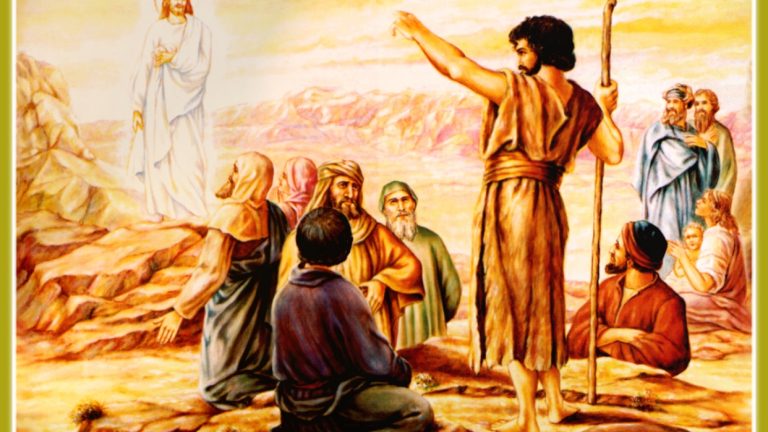THIRD SUNDAY OF ADVENT
Is 61:1-2,10-11; Ps Lk 1
1Thes. 5:16-24; Jn 1:6-8, 19-28
ENLIGHTENED TO ENLIGHTEN
This Sunday, the third Sunday of Advent, is called the “Gaudete Sunday. The day takes its name from the introit “Rejoice in the Lord always; again, I say, rejoice. Let your forbearance be known to all, for the Lord is near at hand.” (Philippians 4:4–6). The name for the day comes from the Latin rendition of this quotation. In Latin Rejoice is “Gaudete”.
There is a little shift in mood because the coming of the Lord is close at hand. From the acts of penance and reconciliation with the Lord, we remember the joy of the coming of Christ. The joy that comes with the sure knowledge that the Lord will come to us and for us.
This is seen in the change of the liturgical colours for this Sunday. The Gaudete Sunday is an indication that we have passed half way towards Christmas. Especially in these times of corona when we have all been stressed and some have lost dear friends or jobs, we are encouraged to rejoice and assured that the Lord has not forgotten us. Things will get better in Jesus name. For every stress, every loss that has caused you sadness and pain, may the coming of Jesus at Christmas shine forth the joy of the angels upon your life.
When we turn to the gospel which is from John 1:6-8,19-28 we read about Johns’ mission and identity. The gospel presents us with the question that we must all face to truly define our identity in the world. Messengers from the Jewish leaders came to John to ask, “Who are you?” A question we must all answer at one point or another.
Are you what you have?
When John denied he was not the Christ, he was clearly saying that his identity is not the benefits of belonging to a lineage of David. That is true. But many of us find our essence in what we have or the lack of it. If this is how you identify yourself, when you lose what you have, your life is finished.
Are you what you do?
They questioned John, if you are not the Messiah why are you baptising. Indeed, we know him today by what he does but that is not how he identifies himself. If you identify yourself by what you do – teacher, footballer, priest, trader – what happens if you retire or are unable to do it anymore?
Are you what people say you are?
The people questioned John over and over again whether he was a Prophet or the Messiah. He denied it all. If you identify yourself by what people say or the compliments they give, you are at the mercy of people’s opinions. When the criticisms become more than the compliments, you know that you are certainly being destroyed emotionally and psychologically.
For John rather than identify himself by what he has, what he does or what people say about him, he rather identifies himself by who he is in the plan of God. He says, “I am the voice of the one crying in the desert, make straight the way of the Lord” (Jn 1:23). In so doing he bore witness to the light that all might come to believe through him.
This is who he is. His very being pointed to Jesus. He lived his life to make Jesus known. He is not the light but allowed himself to be enlightened by Christ.
This is our true identity also. To be witnesses who have been enlightened by Christ. What we are is in our relationship with Jesus. We are baptised to witness to Jesus the light. Witnessing to the light means that we help to overcome every darkness in our lives and in the lives of other people. Responding to the needs of those in need. Fighting for the freedom of others, either economic, political or social.
Rejoice always for the dawn of the light is near.
“Lord, I rejoice in the fact that you are close to me. I am happy that you enlighten me with the gift of your son, the Emmanuel. Direct my path as I let you known to the world and let your light shine forth to everyone.”
God bless you.
By Fr. Delight Arnold Carbonu




